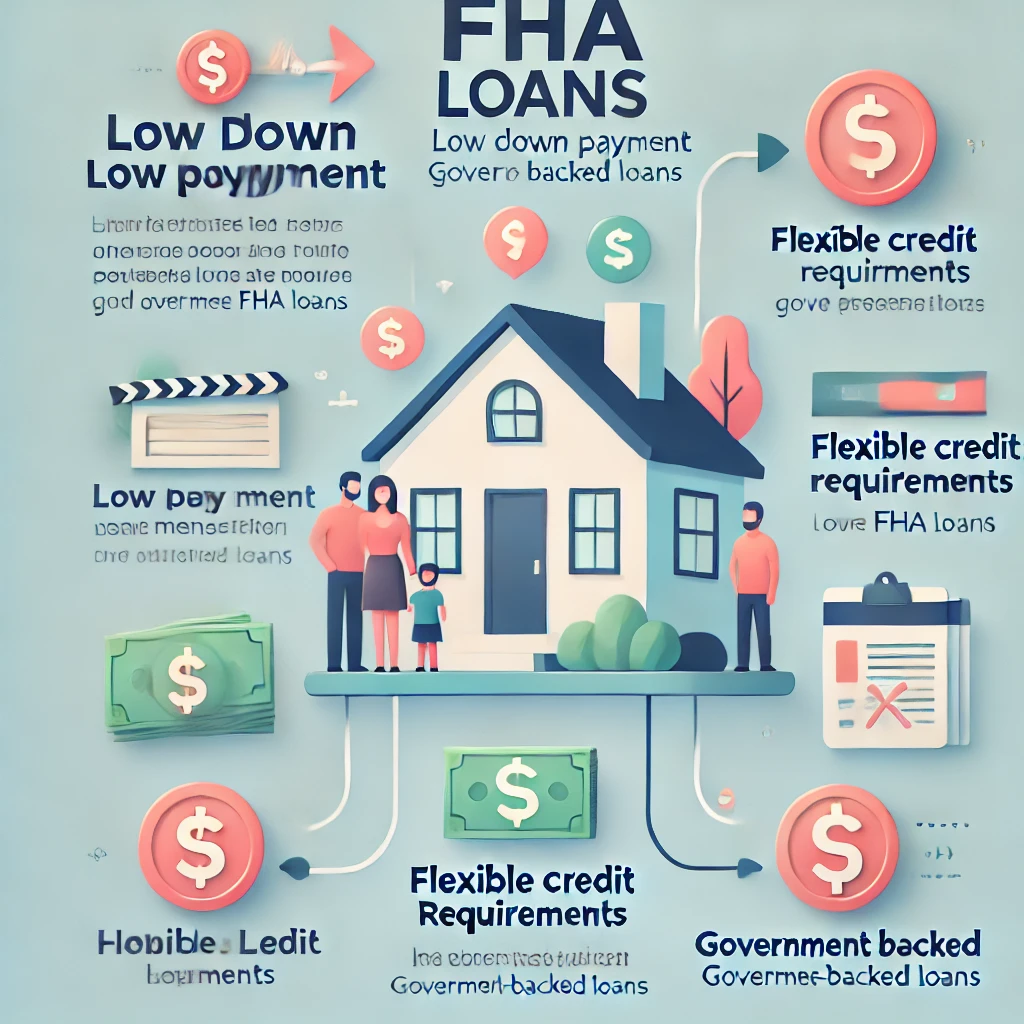What Is the Federal Housing Administration (FHA), and How Can It Help You?
The Federal Housing Administration (FHA) is part of the U.S. Department of Housing and Urban Development (HUD). It was created in 1934 to help Americans afford homes during tough economic times. Today, it’s still helping people—especially those with low or moderate incomes—buy homes by insuring their mortgages.
How Does the FHA Work?
The FHA doesn’t lend money directly. Instead, it protects lenders by insuring the loans they give to homebuyers. This insurance makes lenders more willing to offer loans to people who might not qualify otherwise.
For example:
- You can get an FHA loan with a credit score as low as 500 (if you can put down 10%).
- If your credit score is at least 580, you might only need a down payment of 3.5%.
These requirements are much easier to meet than what’s typically required for conventional loans.

Types of FHA Programs
The FHA offers different loan programs to fit various needs:
- Basic Home Loans (FHA 203(b)): Perfect for buying a primary residence.
- Renovation Loans (FHA 203(k)): Lets you include the cost of home repairs in your mortgage.
- Energy-Efficient Mortgages: Helps you pay for eco-friendly upgrades.
- Reverse Mortgages: Allows seniors to access the equity in their homes without selling them.
Who Can Benefit from FHA Loans?
- First-Time Homebuyers: Lower credit and down payment requirements make it easier to get approved.
- Lower-Income Families: FHA loans are designed to help people with less money saved for a down payment.
- People in Urban or Rural Areas: FHA loans are available across the U.S., no matter where you live.
Things to Keep in Mind
- Mortgage Insurance Costs: FHA loans require you to pay mortgage insurance premiums, which can make the loan more expensive over time.
- Not Always the Best Deal: If you have great credit, a conventional loan might save you money.
Recent Changes
The FHA updates its programs regularly. Recently, it raised loan limits in certain areas to keep up with rising home prices and made it easier to refinance FHA loans.
Why It Matters
The FHA is a great option if you’re struggling to meet the stricter requirements of conventional loans. It opens doors for people who want to buy or improve a home, even if they don’t have perfect credit or a large down payment.
If you’re thinking about buying a home, look into FHA loans—they could be the key to making homeownership a reality!


Comments are closed, but trackbacks and pingbacks are open.